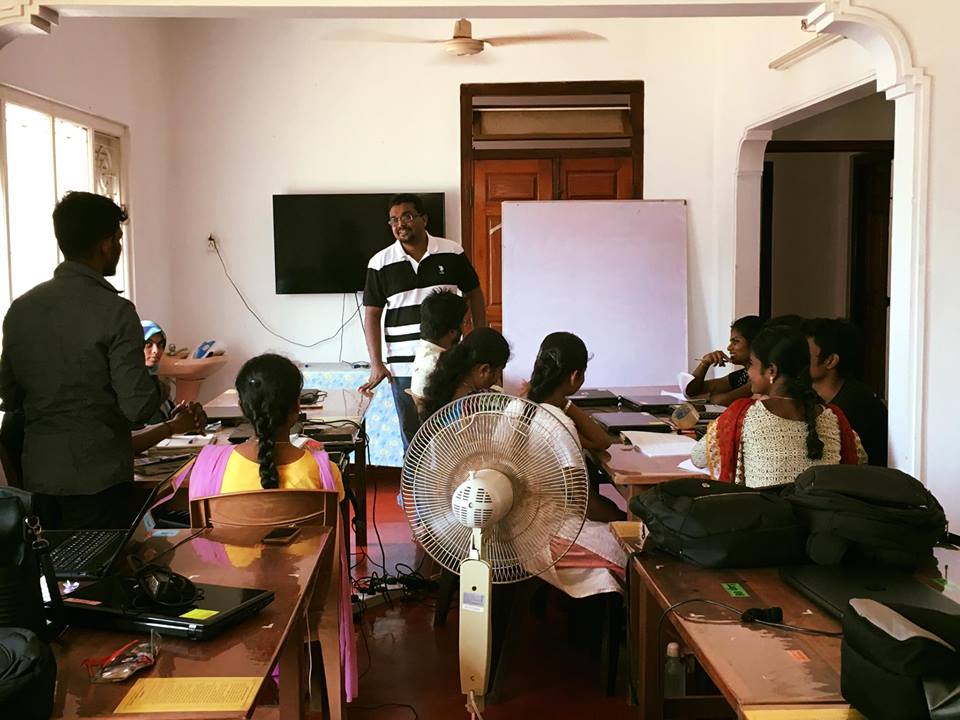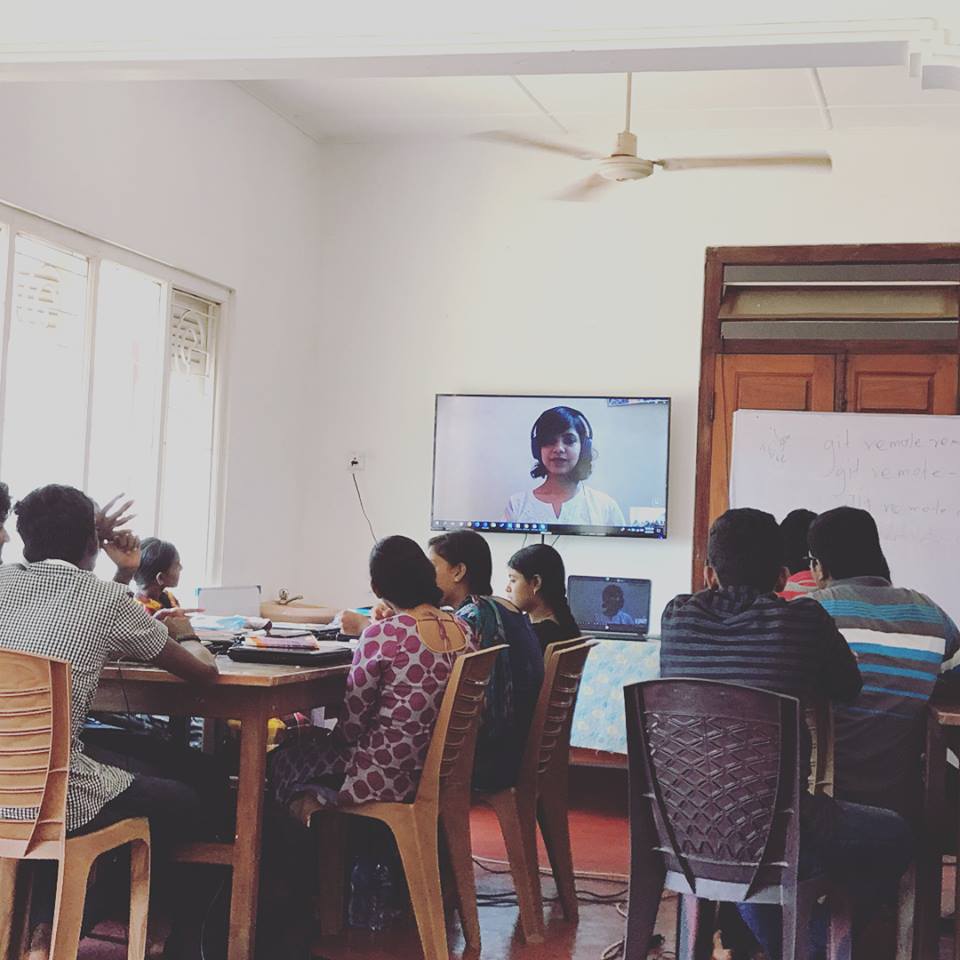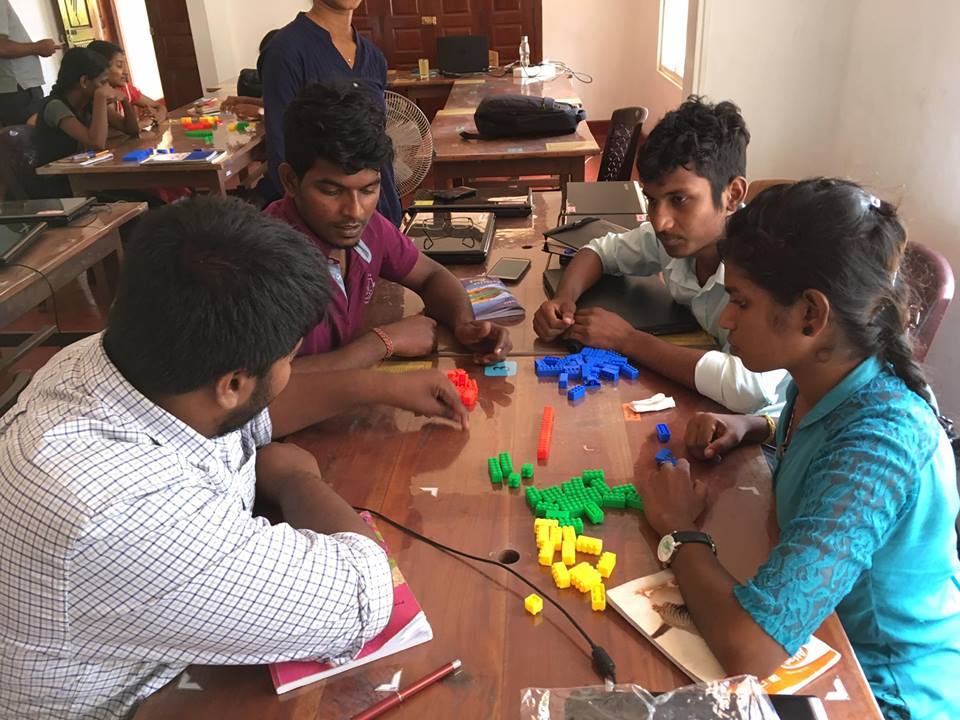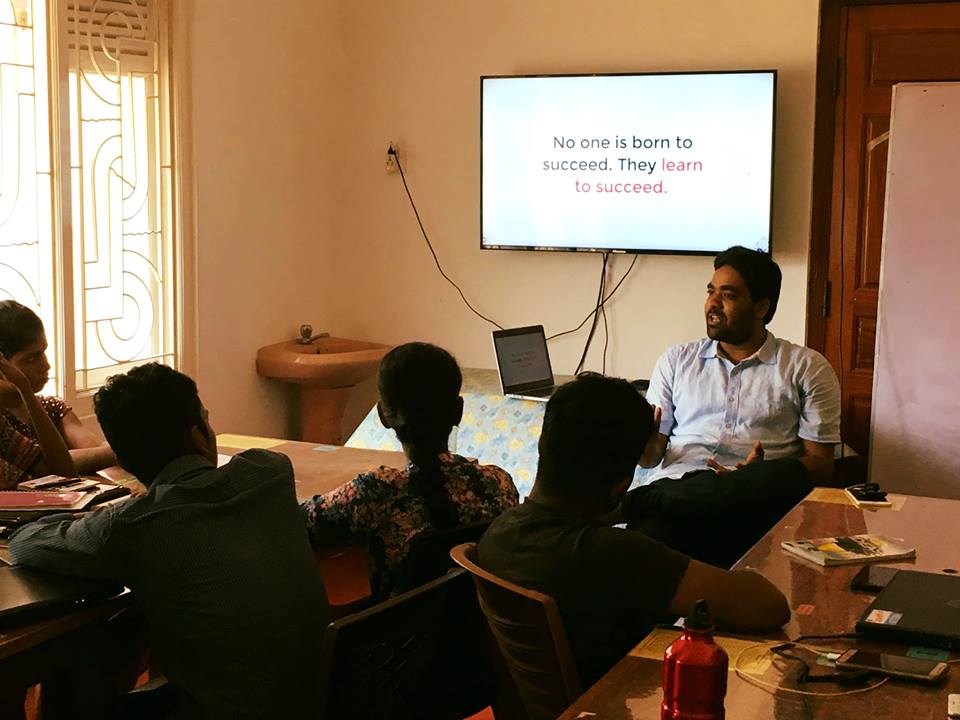.jpg?w=1200)
Nearly ten years since we marked the end of the civil war, the landscape in Jaffna is changing — and not just in terms of tourism development. Eager to advance digitally, and with the ambition of becoming a regional Silicon Valley, Jaffna’s IT scene is growing fast.
The region’s digital growth can be attributed to the Yarl IT Hub, which fosters startup ecosystems, helps youth network, and more recently, attempted to address some of the flaws in the higher education system by providing school leavers with work skills.
This was how UKI, Jaffna’s coding school, was born.
What Is UKI?
Away from the bustle of the main roads, the coding school is located in a repurposed home. The premises were donated to the school by a well-wisher. We dropped by on a Friday evening, just as students were finishing their classes for the week.
The hall of the house is used as the classroom, with one of the rooms on the side being used for administrative purposes.
We met Vithushan Vijayaratnam, the school’s programme director. He tells us that the name, UKI, is derived from Tamil and stands for ‘catalyst’.
“We want to be the catalysts in our students’ lives so that they have better opportunities to pursue their dreams,” he said.

The ideal candidates for the course are students who completed their A/Ls and have a passion for IT, but weren’t able to enter state universities. Given tough competition [for higher education opportunities], and limited private education opportunities in Jaffna, the founders of UKI wanted to provide students with an alternate avenue to pursue a career in IT.
To this end, the school provides a six-month course on IT, English, and personal development. It has also partnered up with big names in the industry—such as WSO2, hSenid mobile solutions and 99X Technologies, to name a few—for internship programmes. Once the students complete this, and if they perform satisfactorily, they could receive placements within the company — all while pursuing higher education, and without having to go through traditional routes for it.

How It Empowers Youth
For many of the students, the course is something fresh. The classroom is different from the typical teacher-centric learning environments in public schools and universities, and students find them stimulating and conducive.
Ravindran Saranyan, a student, finds UKI’s teaching process much more pleasant.
“In universities, they just use slides. At schools, we’re just told to read the book…but here, there’s personal involvement and they teach us one on one,” he added.

The course is practically a scholarship programme, and students are selected after a stringent interview process. This ensures that there is an extremely low drop-out rate, Vijayaratnam said. Applications have to be filled out, and an English placement test is also required. The latter doesn’t influence the selection process, but aids in placements.
The students tell us that they heard about the course through friends — and through Facebook.
In terms of opportunities, the school doesn’t just equip the students with skills necessary for the IT industry; it also provides them with networking and career opportunities.
Take Minerva Jeyarajah for example: an alumna from the first batch of the programme, she expressed interest in remaining with UKI and is now an assistant lecturer.
“During one of the personal development sessions, my tutor suggested that I should consider becoming a lecturer. I had never thought of it before,” she told Roar Media. Having given it some thought, she decided to teach at UKI once her course was over.

Likewise, several other students received internships and placements with tech giants that had partnered with the school.
At the core of UKI’s curriculum is personal development, which in turn pushes students to come up with an idea and develop a product which will solve a practical problem. Their product is then pitched at the Yarl Geek Challenge (YGC) Junior, where they get to showcase their talents, and network with other universities and IT companies.
Having worked with the school from its inception, Vijayaratnam has been able to observe the impact it’s made, and how it encourages youth to pursue careers in IT.
“I was able to see that because this has created a space where people know this [short, specialised courses which lead to employability] can be done. And when people see these things happening, their eyes go so wide and they’re like, ‘Wow’,” he said.
“It’s amazing, right, because when we were studying we never had this.”







